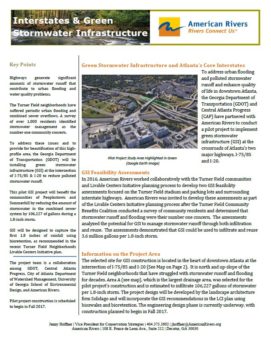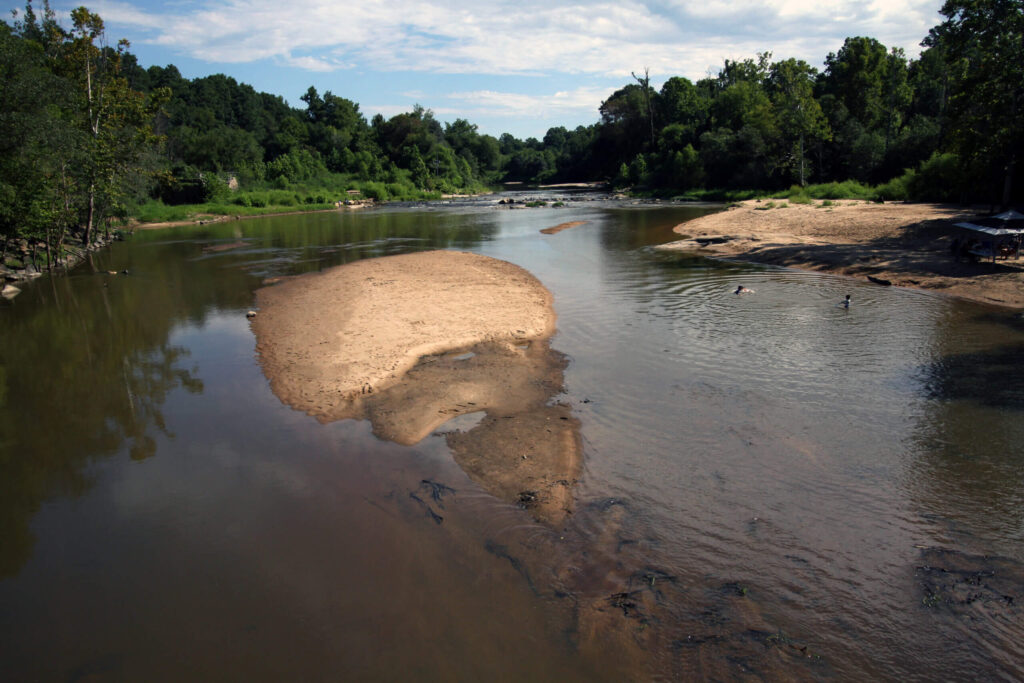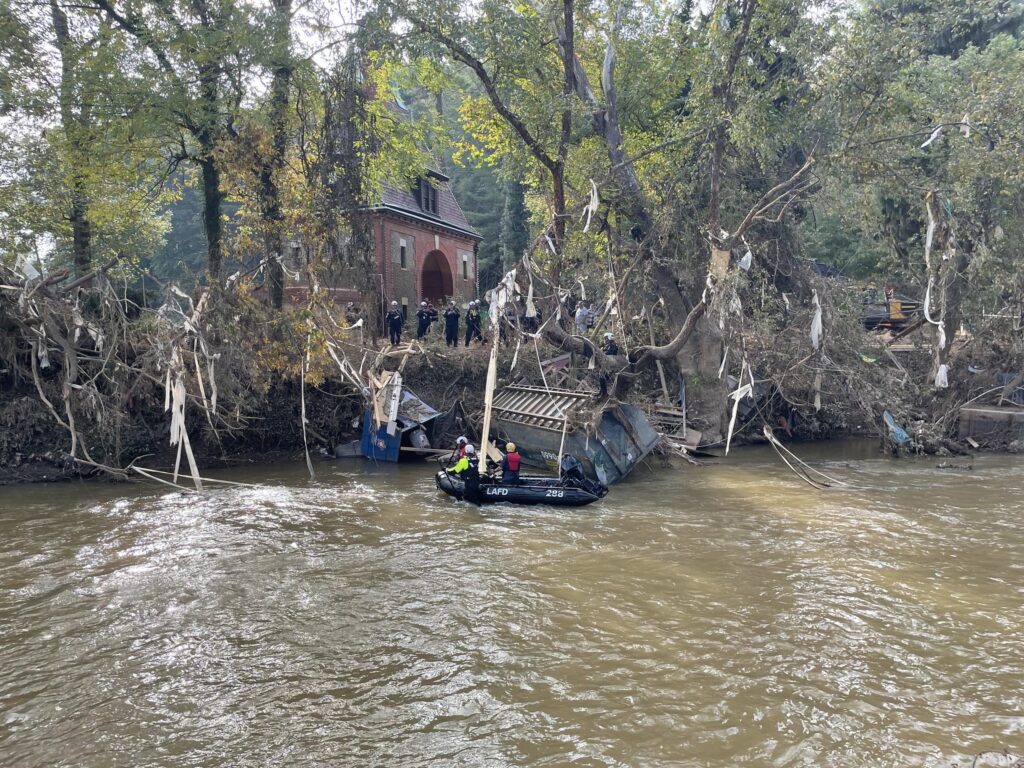Atlanta’s Bridge to Resilience
In one Atlanta community that has historically been marginalized and left out of decision-making processes affecting their neighborhoods, the tides are beginning to change as community partners leverage relationships to implement green stormwater infrastructure along urban highways.
One of the most tell-tale signs that the management of stormwater was a problem in Atlanta occurred in 2012.
After decades of development, all that was left in this area were parking lots and a deteriorating sewage system. As a result, several homes in the Turner Field communities were flooded by massive amounts of stormwater runoff and sewage.
While Turner Field is currently being redeveloped, residents and community partners could no longer stand on the sidelines. By working together to ensure a community driven development process, the growing concerns of stormwater have gradually been put at ease.
Interstate Pilot Project for Turner Field Communities
Two important initiatives, the feasibility studies of green stormwater infrastructure (GSI) and the Turner Field Neighborhoods Livable Centers Initiative (LCI) plan, helped set forth a plan to aid some of Atlanta’s highways. American Rivers and the LCI team collaborated with the Georgia Department of Transportation (GDOT) to determine a way to aid issues with massive downspout disconnect. With the GDOT funding the green stormwater infrastructure and the construction of the pilot project, the problem was well on its way to being fixed.
One thing remained: Finding another partner group to maintain the installations.
Central Atlanta Progress (CAP) was a no-brainer when it came to finding an enthusiastic partner to join our group and carry out the installations for the GSI pilot project. The CAP upholds a strategic plan that specifically addresses the idea of greening the downtown interstate highways. The next step involved bringing both the GDOT and CAP teams together.
The first meeting between all of the partners was held in early December 2016. Each of the individual team members represented diverse backgrounds and departments, yet all shared a mutual willingness to champion this project. Based off of our feasibility studies, we were able to reach four possible options for the project. By the end of the meeting, we had chosen our construction site: the intersection of I-75/85 and I-20 in downtown Atlanta.
Today, the GSI pilot project is underway and construction is anticipated to begin in the fall of 2017. The landscape architecture firm, Solidago Design Solutions, is now developing design plans for the site that will follow our feasibility assessment recommendations. By using bioretention to capture stormwater, it is likely that the recommendation of 1.8 inches of rainfall will be infiltrated through green stormwater infrastructure.
“Can you hear me?”
For this community in particular, residents often feel misrepresented, as though they cannot voice their opinions. By taking matters into their own hands, residents decided to initiate programs that provide outlets for voices to be heard. Trained citizen advocates represent the desires, concerns, and wishes of the community.
Fortunately, the interstate GSI pilot project is shedding light on the needs of the surrounding community. The project presents the opportunity for the GDOT to evolve their approach to stormwater management systems, while also addressing communal concerns.
An important connection between the flow of people and the flow of water must be an interconnected process. These two parts of a well-oiled machine can improve the holistic design of urban stormwater management, transportation, and sustainability. By implementing a new way of managing stormwater run-off, communities will have the health, quality of life, and access that they deserve.
There is no solitary department, agency, school, organization, or business that can provide the single solution to stormwater management. This is a collective issue that will take a collective effort to make sure that the identity of this community remains intact and is a reflection of its residents.
This interstate GSI pilot project could serve as a model for other State Departments of Transportation in order to address stormwater entering communities, while also incorporating community recommendations and feedback into planning efforts.






4 responses to “Atlanta’s Bridge to Resilience”
Hello Mr Udemba, I had a pen pal many years ago in Africa(possibly Kenya)whose name was similar to yours. It would have been the mid 1970’s.
Hi Chukwudi,
Please feel free to contact Ben Emanuel at bemanuel@americanrivers.org about your interest in joining the Watershed Advocacy Training in Atlanta. Thank you!
I will like to join the group
nice information.